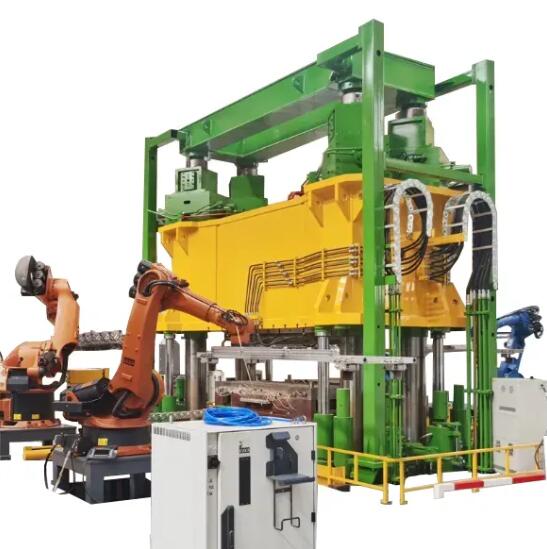Enhancing Precision and Efficiency: The Role of Hydraulic Systems in SMC Forming
2024-02-27
Introduction:
In the world of manufacturing, precision and efficiency are paramount, especially in processes like Sheet Molding Compound (SMC) forming. At the heart of achieving these goals lies the hydraulic system, a sophisticated network of components that drives the performance of hydraulic presses. In this blog, we'll delve into how hydraulic systems contribute to the efficiency and precision of SMC forming, highlighting their key functions and benefits in the manufacturing process.
1. Generating High Pressure:
One of the primary functions of the hydraulic system in SMC forming is to generate high pressure, which is essential for shaping and molding SMC sheets. Hydraulic pumps within the system pressurize hydraulic fluid, which is then transmitted to hydraulic cylinders. As the fluid acts upon the pistons in the cylinders, immense force is exerted on the pressing surface or tooling, allowing for precise and controlled deformation of the SMC material. This capability enables the hydraulic press to exert consistent pressure across the entire workpiece, resulting in uniform forming and high-quality finished parts.
2. Providing Precise Control:
Hydraulic systems offer unparalleled precision and control over the forming process, thanks to advanced control mechanisms and feedback systems. Programmable logic controllers (PLCs) and human-machine interfaces (HMIs) allow operators to set and adjust various parameters such as pressure, speed, and stroke length with precision. Sensors embedded within the hydraulic system provide real-time feedback on factors such as pressure, temperature, and position, enabling operators to monitor and fine-tune the forming process for optimal results. This precise control ensures that formed parts meet tight tolerances and specifications, reducing scrap and rework while enhancing overall productivity.
3. Accommodating Variable Loads:
In SMC forming, workpieces come in a variety of shapes, sizes, and thicknesses, each requiring different levels of force for proper shaping. Hydraulic systems excel at accommodating variable loads, thanks to their inherent flexibility and adaptability. By adjusting pressure levels and cylinder configurations, hydraulic presses can effectively handle a wide range of workpiece geometries and material properties. This versatility allows manufacturers to produce complex parts with intricate details and contours, all while maintaining high levels of precision and efficiency.
4. Enabling Rapid Cycling:
Hydraulic systems enable rapid cycling of the forming process, minimizing downtime and maximizing productivity. Quick actuation of hydraulic cylinders, coupled with fast response times from control systems, allows for swift transitions between forming cycles. This rapid cycling capability reduces cycle times and increases throughput, making hydraulic presses ideal for high-volume production environments. Additionally, the ability to pre-program and store forming sequences in PLCs enables seamless automation and batch processing, further enhancing efficiency and repeatability in SMC forming operations.
5. Ensuring Safety and Reliability:
Hydraulic systems are designed with safety and reliability in mind, incorporating features such as pressure relief valves, safety interlocks, and fail-safe mechanisms to protect operators and equipment. Pressure relief valves prevent overpressurization of the system, reducing the risk of equipment damage or failure. Safety interlocks prevent access to hazardous areas during operation, while fail-safe mechanisms ensure that the press automatically shuts down in case of emergencies. These safety measures contribute to a secure working environment and minimize the risk of accidents or injuries, ensuring smooth and reliable operation of hydraulic presses for SMC forming.
Conclusion:
The hydraulic system plays a critical role in enhancing the efficiency and precision of SMC forming, enabling manufacturers to produce high-quality parts with consistency and accuracy. By generating high pressure, providing precise control, accommodating variable loads, enabling rapid cycling, and ensuring safety and reliability, hydraulic systems empower manufacturers to achieve excellence in SMC forming operations. As technology advances and manufacturing demands evolve, hydraulic presses will continue to serve as indispensable tools in the pursuit of innovation and excellence in manufacturing.



